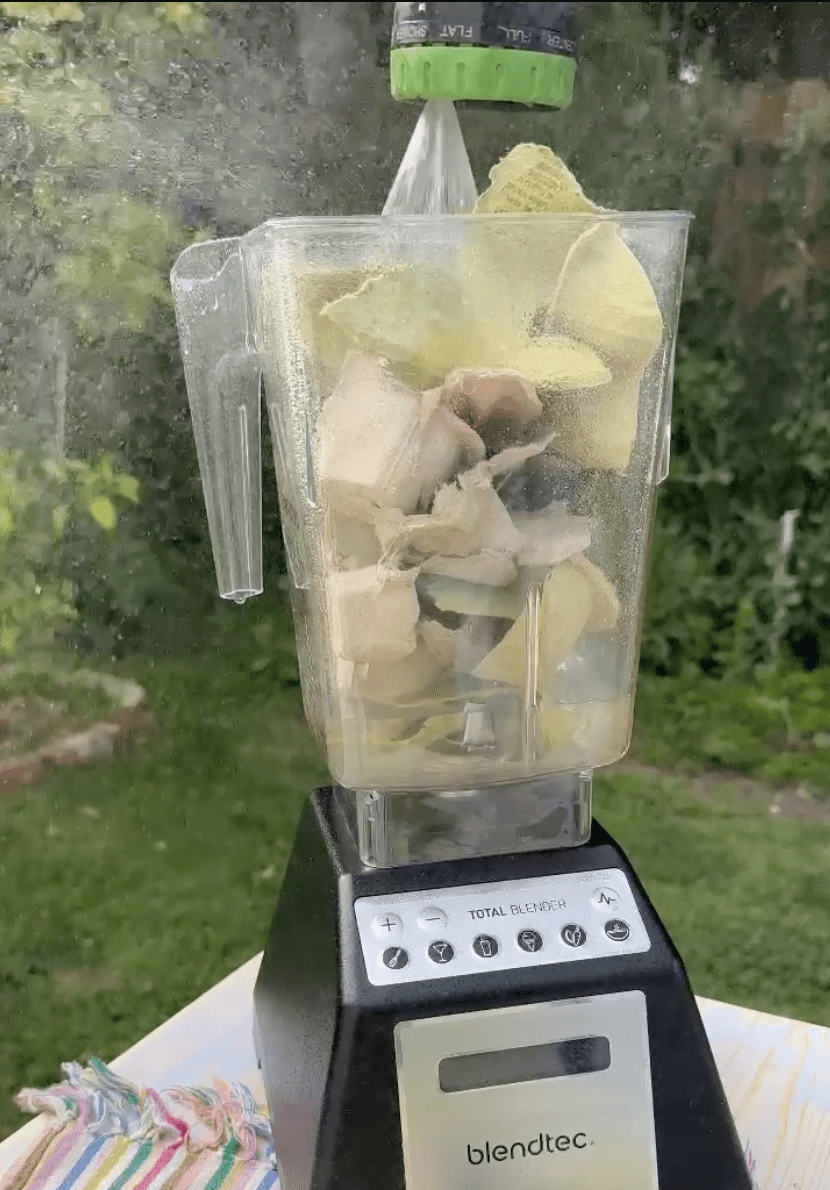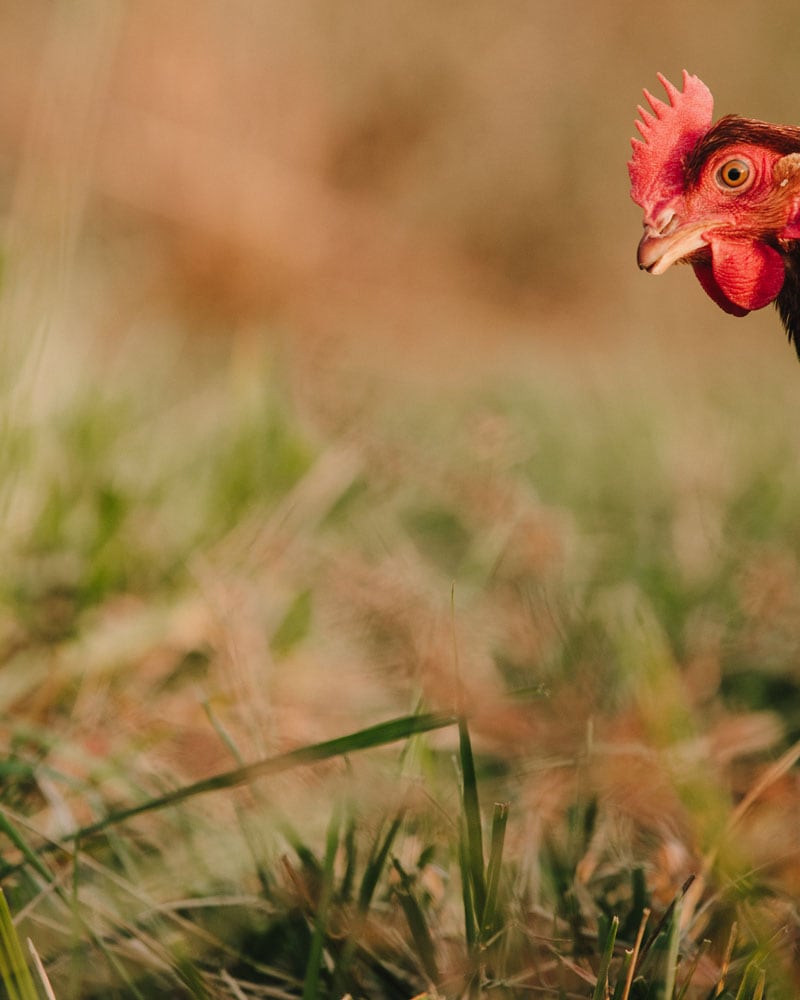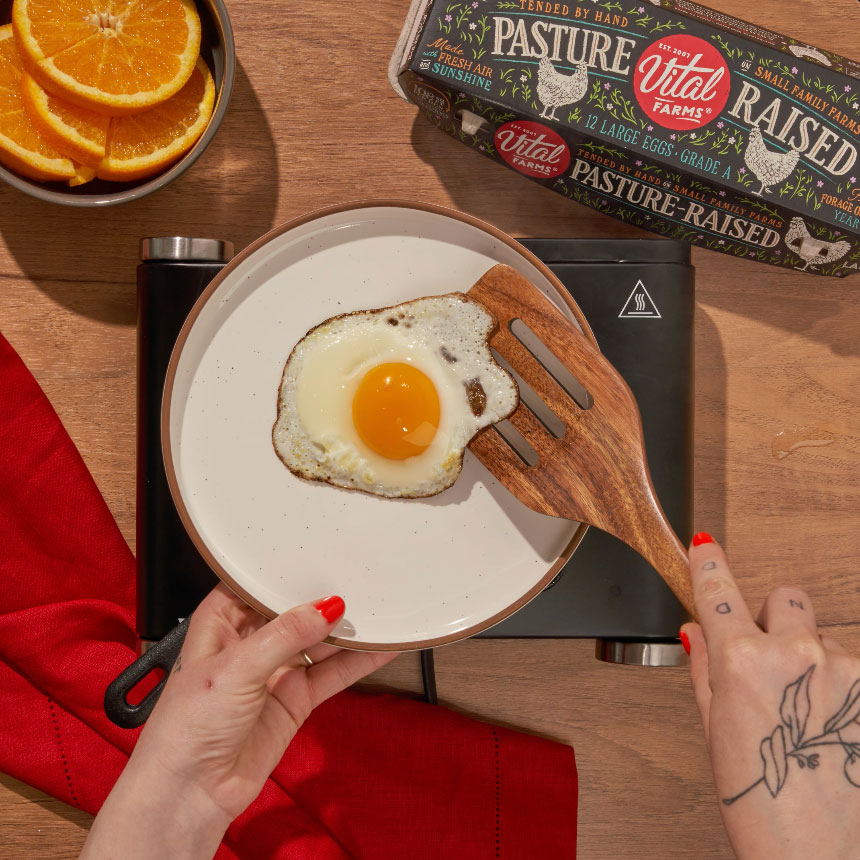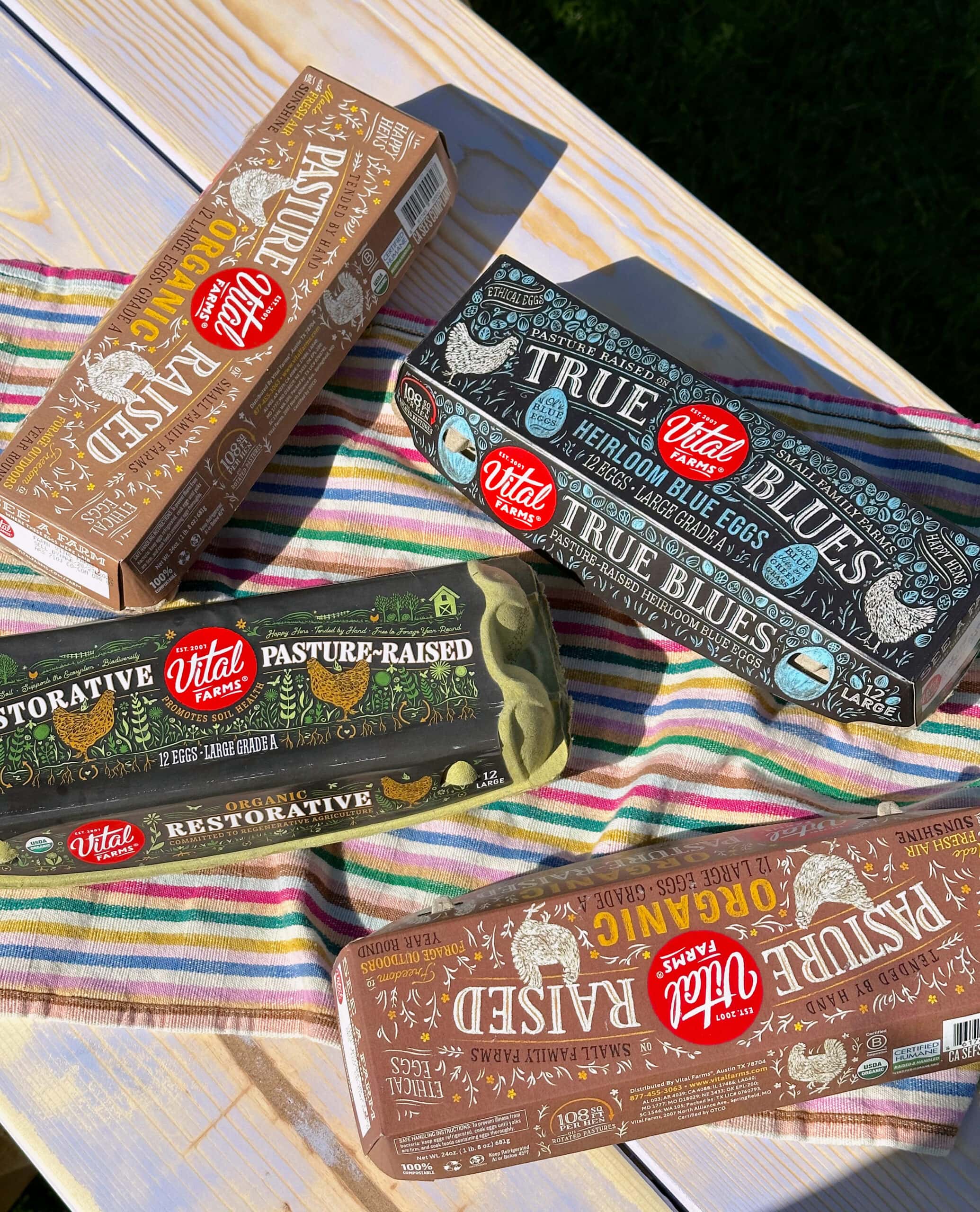
Whether you’re new to composting, actively maintaining a compost pile, or interested in joining your community’s local composting program, we’re bringing you compost hacks designed to inspire you to reduce waste and improve your kitchen’s overall footprint.
All of that said, let’s talk egg cartons!
Have you heard the news!? We’re transitioning our 18-count eggs to 100% recyclable and compostable post-consumer paper cartons. For more info on this change, check out our 2023 Impact Report. This means that when given the right conditions, Vital Farms egg cartons can be broken down into soil.
That’s excellent news(!)…assuming you know how to compost. In case you don’t, we’ll “break it down” for you with some tips and tricks to get you started.
Composting Basics
Composting is the process of converting organic matter, such as paper and food scraps, into nutrient-rich soil.
There are three basic ways to start a compost pile:
- Outdoors using a bin, tumbler, or fenced area
- Indoors through vermicomposting, a composting method utilizing earthworms
- Collecting compost material in a container for a local pick-up service or community drop-off site
We’re transitioning our 18-count eggs to 100% recyclable and compostable post-consumer paper cartons
- Carbon (brown matter)
- Nitrogen (green matter)
- Water (moisture)
- Oxygen (air)
Carbon-rich brown matter includes egg cartons, dried leaves, paper towel rolls, and shredded paper. Meanwhile, nitrogen-rich green matter can be grass clippings, coffee grounds, tea bags, fruit, and veggie scraps. Water assists with decomposition and temperature regulation, while air controls odors and helps maintain a healthy balance of bacteria within the pile.
Paper is a source of carbon (energy). Adding carbon to your compost pile increases its ability to retain water and helps accelerate the breakdown of nitrogen-rich food scraps.
How to Compost Your Egg Cartons
- Remove any stickers that may be present on the carton
- Rip or cut your carton into small pieces. The smaller they are, the quicker they’ll break down.
- Add the pieces to your compost and mix to combine. Alternatively, place them in your local community’s collection bin.
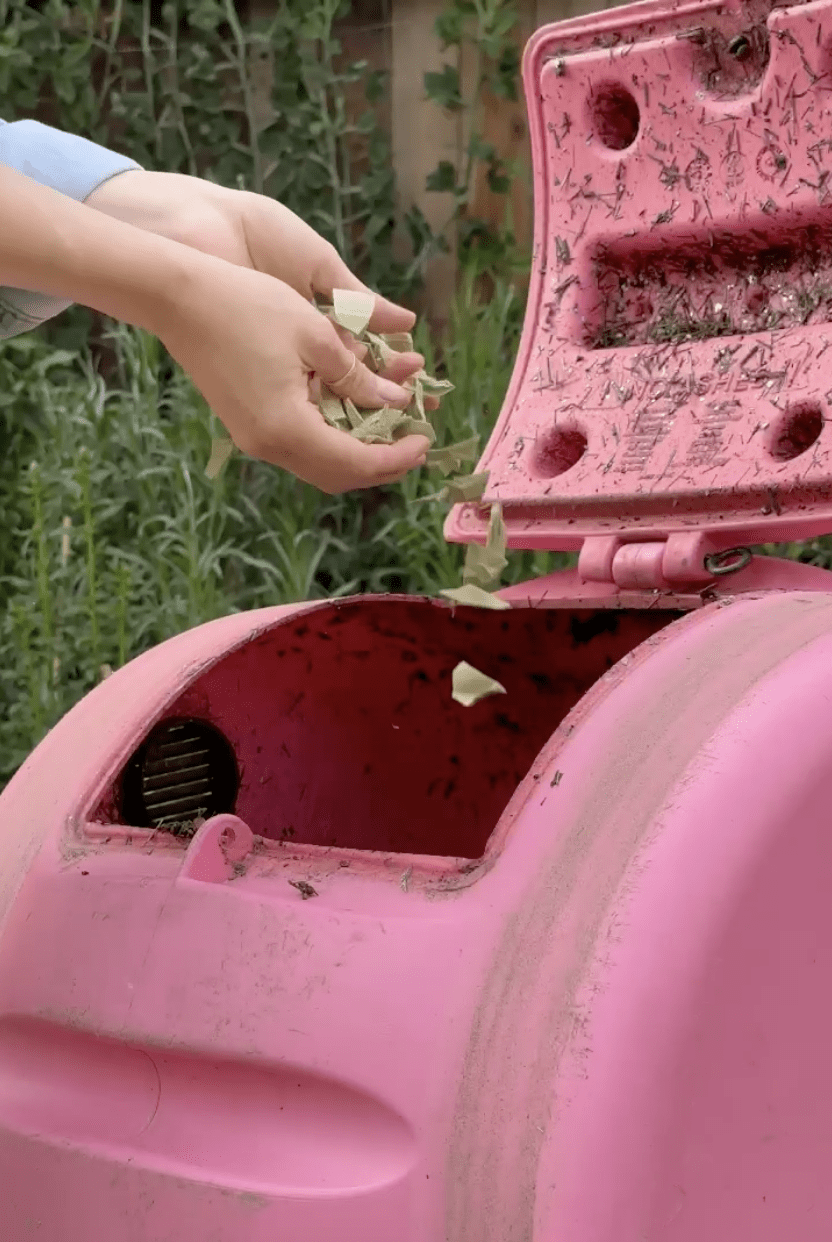
- Remove any stickers that may be present on the carton.
- Rip your carton into pieces and place them in a blender.
- Add roughly 1 cup of water and blend until combined into a mush.
- Pour the blended cartons into your compost and mix to combine.
